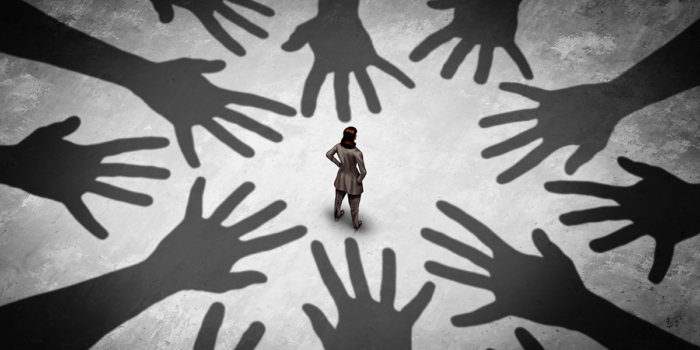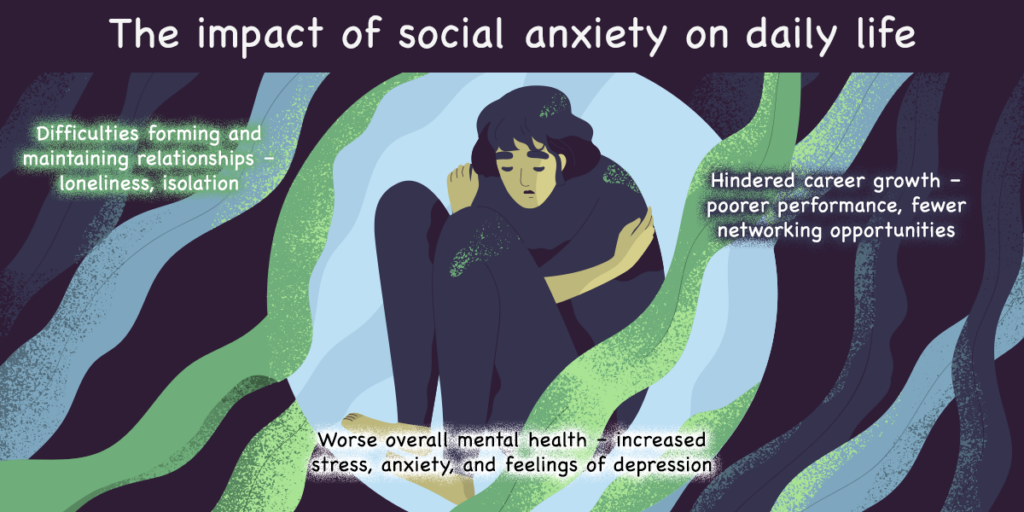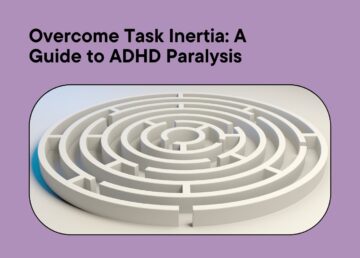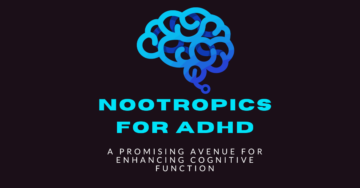
Social anxiety is a common psychological condition that affects millions of people worldwide. It’s more than just shyness – it can significantly impact a person’s daily life, interpersonal relationships, and overall well-being.
Intense fear or anxiety in social situations that prevent people from comfortably socializing, drawing personal boundaries, or speaking their minds can be detrimental as it prevents the person from feeling included in a community.
Recognizing and addressing social anxiety is crucial, especially if a person experiences its crippling effects. This article will explore the causes, symptoms, and various treatment options for managing social anxiety.
By understanding the nature and symptoms of social anxiety and seeking appropriate help, you can regain control over your life and improve your social interactions.
In this article
What Is Social Anxiety? Exploring the Core Concept
Social anxiety is a form of anxiety or an intense fear of various social situations. For some, it might manifest as a fear of performing – public speaking, singing, reading out loud, or playing a sport (whether in front of an audience or privately).
Others might fear expressing their opinion, making small talk, talking to authority figures, asking for help, and more.
Individuals with social anxiety disorder may often experience excessive self-consciousness and worry about being judged or embarrassed in social settings. This self-consciousness can result in people fearing doing regular activities, such as:
- eating or drinking around others,
- introducing themselves,
- urinating in public,
- flirting and setting dates with a person of interest,
- speaking on the phone,
- engaging in sexual activity.
Often, social anxiety and social phobia are used interchangeably, but these two have slightly different meanings in a psychiatric context. Many people can have social anxiety and can experience some of the symptoms. Social phobia, however, is a social anxiety disorder characterized by intense fear of any social setting.
In simple terms, social anxiety is a broad term to describe people’s symptoms and discomforts. Social phobia, or social anxiety disorder, is a diagnosable condition defining extreme fear of and avoidance of socialization.
Symptoms and indicators of social anxiety
For most people, social anxiety develops over time – it is usually caused by previous negative experiences in socialization, such as being commented on or noticing disengagement in another person while conversing.
However, past experiences are not the only factors that can induce social anxiety. There are many reasons why people develop it – it can be environmental (e.g., painful experiences during socialization), cognitive (negative self-judgment and poor self-image), and genetics (“inherited” from your parents).
Social anxiety manifests through various physical, emotional, and behavioral symptoms.
Physical symptoms
Physical signs of social anxiety may include rapid heartbeat or heart palpitations, sweating, trembling, dizziness, shortness of breath, nausea, or an upset stomach.
These bodily reactions are the direct result of the body’s fight-or-flight response.
While in fight-or-flight, the body readies itself by increasing respiration rate to bring more oxygen to the brain, sweating to cool the body, focusing attention on the threat, and tensing the muscles to ready the body for fleeing or fighting.
The human body perceives performance or socialization as a threat and danger, preparing the body to react accordingly.
Emotional symptoms
Some people with social anxiety may experience intense feelings of fear, anxiety, or panic in social settings.
Self-esteem also plays a considerable role – studies have found that lower self-esteem directly correlates with higher social anxiety.
A persistent fear of being judged or humiliated and believing that others perceive you as a low-value individual can create an overwhelming desire to avoid social interactions.
Behavioral symptoms
People with social anxiety may display specific behaviors that help them cope with social situations.
One of the most common behavioral social anxiety symptoms is avoidance. Avoiding social events or situations that trigger anxiety allows the person with social anxiety to prevent the perceived threat.
As a result, they may have difficulty speaking in public, initiating conversations, or maintaining eye contact with others.
Social anxiety in children and adolescents
Sadly, social anxiety often affects people during their formative years, too. Parents or guardians often mistreat it for modesty, but some signs can indicate that children, adolescents, and young adults are struggling.
Typically, children and teenagers express similar symptoms of social anxiety as adults, but there may be other indications – poor academic performance and difficulty making and maintaining friends.
While the causes of social anxiety differ for every individual, children and adolescents might develop anxiety or fear of socialization if they are bullied or socially rejected by peers, lack parental support, have overprotective parents, or experience traumatic events.
Moreover, social anxiety can coexist with other mental disorders, such as attention deficit and hyperactivity disorder (ADHD), depression, and generalized anxiety disorders.
Unraveling the Causes of Social Anxiety
Social anxiety can emerge from various factors, including genetic predispositions, environmental influences, and cognitive factors.
Genetic factors
Genetic factors play a role in social anxiety disorder, as studies have shown that individuals with a family history of anxiety disorders are more likely to develop social anxiety themselves.
Genetic predispositions may influence brain chemistry and how people respond to stress and fear.
Environmental factors
Environmental factors, such as childhood experiences or learned behaviors, can contribute to the development of social anxiety.
Various negative social interactions, bullying, or traumatic experiences can significantly contribute to the development of social anxiety during childhood or later in life.
Cognitive factors
These factors refer to people’s thoughts and beliefs about themselves and their social interactions. Negative self-perceptions, distorted thinking patterns, low self-esteem, and irrational beliefs about social situations can intensify social anxiety.
The role of past experiences
The Anxiety and Depression Association of America (ACAA) reports that social anxiety typically appears around age 13 and affects 15 million people in the United States. The same report shows that people typically seek help when symptoms persist for 10 or more years.
While a combination of affecting factors influences the development of social fear or even social anxiety disorder in most cases, negative past experiences and trauma can influence both cognitive and emotional factors of social anxiety.
The Impact of Social Anxiety on Daily Life
Social anxiety can have a profound impact on an individual’s daily life, affecting personal relationships, professional life, and overall mental health and well-being.
Social relationships
Social anxiety may lead to difficulties in forming and maintaining relationships in personal relationships. Individuals with social anxiety may fear judgment or rejection, leading to isolation, loneliness, and a limited social support network.
Hence, meeting new people and maintaining existing friendships is challenging for people with social anxiety.
Professional life
Social anxiety can interfere with career advancement and job performance in the professional and career sphere.
Higher positions, salary negotiations, assertiveness, public speaking, and other interactions are a large part of many jobs. Therefore, speaking in front of an audience, networking, or participating in meetings can significantly impact professional opportunities.
Mental health and well-being
Social anxiety can also have detrimental effects on mental health and overall well-being.
People with social anxiety may experience increased stress, anxiety, depression, and reduced overall quality of life. In addition, low self-esteem, isolation, and loneliness can lead to dissatisfaction with life in general.

Diagnosing Social Anxiety Disorder
While social anxiousness can be experienced by many, it is essential to distinguish between social anxiety and social anxiety disorder.
Social anxiety refers to the general fear and discomfort in social situations. However, social anxiety disorder is a clinical diagnosis that requires specific criteria to be met.
Criteria for diagnosis
Studies show that around 12% of the population are diagnosed with social anxiety disorder at some point in their lives. However, diagnosing social anxiety disorder involves an assessment by mental health professionals, such as psychologists or psychiatrists.
The criteria for diagnosis include:
- a persistent fear of social situations,
- significant distress or impairment in daily functioning,
- symptoms lasting for at least six months.
The role of mental health professionals
It’s essential to seek help from mental health professionals to treat social anxiety disorder, as their role in the diagnosis and treatment of social anxiety disorder is fundamental.
Psychiatrists and therapists can provide support, guidance, and evidence-based interventions to help individuals manage and overcome social anxiety disorder.
Self-assessment and screening tools
Self-assessments and screening tools, such as questionnaires or online assessments, can also help identify potential social anxiety disorder symptoms.
Whatever the result of self-assessments, if you need guidance or help with social anxiety disorder diagnosis, it is essential to consult a qualified healthcare provider for a comprehensive evaluation and treatment plan.
Effective Treatment Options for Social Anxiety
Fortunately, social anxiety and social anxiety disorder can be effectively managed. Treatment typically involves a combination of psychotherapy, medication, and alternative therapies. Each case is unique, and finding what works best for you is crucial.
Cognitive behavioral therapy (CBT)
Cognitive behavioral therapy (CBT) is a widely recognized and practical approach used to treat social anxiety disorder and other mental health conditions.
CBT helps individuals identify and challenge negative thought patterns and develop healthier coping mechanisms. In the case of social anxiety, CBT can help develop methods to approach social situations with ease, improve self-esteem, and manage existing fear and anxiety.
Exposure therapy
Exposure therapy is a specific technique often used within CBT to address social anxiety. It involves gradually exposing individuals to feared social situations in a controlled and supportive environment.
This way, people can confront and overcome their anxieties in a safe environment.
Social skills training
Social skills training is another valuable component of treatment for social anxiety disorder. It helps you develop and improve social skills, such as:
- assertiveness,
- effective communication,
- active listening.
Knowing how to handle social situations and maintain relationships with other people can improve social interactions and reduce anxiety over time.
Cognitive restructuring
Cognitive restructuring focuses on identifying and challenging negative or distorted thoughts associated with social anxiety.
Individuals can reshape their thinking patterns and manage their anxiety by acknowledging and gradually replacing irrational beliefs about socialization and themselves with more realistic and positive ones.
Medications
In some cases, medications such as selective serotonin reuptake inhibitors (SSRIs) or anti-anxiety drugs may be prescribed to help manage symptoms of social anxiety disorder.
These medications can temporarily relieve anxiety but are typically used in conjunction with therapy.
As with any medication, please consult a medical professional and use it according to their advice.
Alternative therapies
While the pharmaceutical and therapeutic approach is proven to be effective in treating social anxiety disorder, there are other methods that can be useful.
Mindfulness and meditation
Mindfulness is a great tool and can be beneficial in managing social anxiety. Mindfulness practices, such as meditations or yoga, help individuals become more present and aware of their thoughts and emotions, reducing tension in social situations.
Raising awareness of one’s own feelings can bring more sense to them and, thus, alleviate symptoms of social anxiety.
Support groups
Having someone to rely on is always great when coping with hardships. A loved one, a family member, a friend, or a therapist can provide a sense of belonging and reduce the fear of being judged or socializing in general.
Support groups can also provide a sense of community and understanding that you’re not alone. These groups allow people to share their experiences and learn from others facing similar challenges.
Sensa
Sensa, an app based on cognitive-behavioral principles, can be valuable in managing social fear and anxiety. Sensa provides a comprehensive approach to improving overall well-being with daily lessons, tasks, habit-building exercises, mood journaling, and mindfulness practices.
However, it is essential to note that Sensa is not a replacement for therapy or medical treatment but rather a supplementary tool to help maintain social anxiety.
Consult a qualified healthcare professional for personalized care if you’re struggling with a severe social anxiety disorder.
Self-Help Strategies for Overcoming Social Anxiety
While therapy and professional support are crucial, self-help strategies can complement the treatment of social anxiety and aid in its management. This can be done alone or with the help of tools like Sensa.
Challenging negative thought patterns
Challenging and changing negative thoughts is a fundamental aspect of self-help for social anxiety.
By recognizing and aiming to resolve negative thoughts about themselves or socialization in general, individuals can reframe their thinking and reduce anxiety-provoking beliefs.
Building social confidence
Building social confidence involves exposing oneself to social situations and practicing real-life social skills.
Individuals can build confidence and improve their social interactions by starting with small steps and gradually increasing exposure through initiating small talk, being assertive, or reaching out to friends and family members.
Developing healthy coping mechanisms
Coping mechanisms are essential for many mental health disorders, including social anxiety. However, not all (e.g., alcohol or substance use, isolation) are healthy.
Healthy coping mechanisms can include deep breathing exercises during intense moments, relaxation techniques, positive self-talk or affirmations, or engaging in activities that bring joy and relaxation.
Sensa offers a library of exercises, including deep breathing techniques, that can be used as coping mechanisms, such as meditations, grounding, and guided breathing exercises.
Frequently Asked Questions About Social Anxiety
Social anxiety and social anxiety disorder can be complex topics, and people may have various questions and concerns. Here are answers to some commonly asked questions:
Can social anxiety be cured?
While social anxiety cannot be completely cured, it can be effectively managed through therapy, self-help strategies, and, if necessary, medications.
With appropriate support and treatment, individuals can experience significant improvements in their social anxiety symptoms and regain control over their lives.
Is social anxiety a sign of weakness?
No, social anxiety is not a sign of weakness! It is a legitimate mental health condition that affects people from all walks of life.
Only 5% of people with social anxiety disorder seek help in the first year of noticing symptoms – possibly because they fear admitting the issue. Nevertheless, seeking help and support for social anxiety takes strength and courage.
How can I support someone with social anxiety?
Supporting someone with social anxiety involves providing understanding, patience, and empathy.
It’s essential to understand that people with social anxiety disorder are not avoiding socialization because they want to. A subconscious fear or anxiety about socializing prevents them from living a happy and fulfilled life, so supporting them through their journey is vital.
Additionally, encouraging them to seek professional help and offering support during challenging social situations can make a significant difference in managing their social anxiety disorder.
Moving Forward and Embracing Life Without Social Anxiety
Recognizing progress is an essential step in the journey toward improvement. Celebrating success, maintaining gains, and preventing relapses are ongoing processes that require commitment and self-care.
According to the World Health Organization (WHO), around 25% of the population felt an increase in anxiety due to the pandemic, and it can be tough to get back to regular life and engage in social situations.
Therefore, embracing a supportive community through therapy, support groups, or online communities can provide valuable encouragement and understanding.
By seeking professional help, implementing self-help strategies, and considering CBT tools like Sensa, individuals can empower themselves to live a fulfilling life free from the constraints of social anxiety.
Frequently Asked Questions
What are some examples of social anxiety?
Social anxiety is a common anxiety disorder that can affect people of all ages and backgrounds. It is characterized by a persistent fear of social situations and a fear of being judged or scrutinized by others. People with social anxiety may experience a variety of symptoms in social situations, including:
- Fear of public speaking or performing in front of others
- Fear of talking to new people or making new friends
- Fear of being in crowded or unfamiliar places
- Fear of eating or drinking in public
- Fear of blushing, sweating, or having a panic attack in public
What it feels like to have social anxiety?
Social anxiety can be a very debilitating condition. People with social anxiety may experience a range of negative emotions in social situations, including:
- Anxiety
- Fear
- Shame
- Dread
- Embarrassement
- Worry
- Self-consciousness
- Paranoia
These negative emotions can lead to a number of physical symptoms, such as:
- Increased heart rate
- Sweating
- Trembling
- Flushing
- Dry mouth
- Nausea
- Difficulty breathing
What is the root cause of social anxiety?
The exact cause of social anxiety is not fully understood, but it is thought to be a combination of genetic and environmental factors. Some possible causes include:
- Genetic predisposition: People with a family history of anxiety disorders are more likely to develop social anxiety.
- Childhood experiences: Negative or traumatic experiences in childhood, such as bullying or social rejection, can increase the risk of developing social anxiety.
- Personality traits: People with certain personality traits, such as shyness or perfectionism, may be more prone to social anxiety.
- Lifestyle factors: Stressful life events, such as major life changes or trauma, can trigger social anxiety in people who are already at risk.
How do I stop being socially anxious?
There is no one-size-fits-all cure for social anxiety, but there are a number of treatment options available that can help people manage their symptoms and improve their quality of life. Some of the most effective treatments for social anxiety include:
- Cognitive-behavioral therapy (CBT): CBT is a type of psychotherapy that helps people identify and challenge negative thoughts and beliefs that contribute to anxiety.
- Exposure therapy: Exposure therapy involves gradually exposing people to feared social situations in a safe and controlled environment.
- Social skills training: Social skills training teaches people how to interact with others in a more confident and effective way.
- Medication: In some cases, medication may be used to help manage the symptoms of social anxiety.
It is important to remember that social anxiety is a treatable condition. With the right treatment, most people can learn to manage their symptoms and enjoy a fulfilling life.
If you are struggling with social anxiety, it is important to seek professional help. A therapist can assess your situation and recommend the best treatment options for you. With time and effort, you can overcome social anxiety and live a full and meaningful life.
References:
- Leary, M.R. and Kowalski, R.M., 1997. Social anxiety. Guilford Press.
- Leichsenring, F. and Leweke, F., 2017. Social anxiety disorder. New England Journal of Medicine, 376(23), pp.2255-2264.
- DiBartolo, P.M. and Hofmann, S.G. eds., 2014. Social anxiety: Clinical, developmental, and social perspectives. Elsevier.
- Morrison, A.S. and Heimberg, R.G., 2013. Social anxiety and social anxiety disorder. Annual review of clinical psychology, 9, pp.249-274.
- Rodebaugh, T.L., Holaway, R.M. and Heimberg, R.G., 2004. The treatment of social anxiety disorder. Clinical Psychology Review, 24(7), pp.883-908.
- Turk, C.L., Heimberg, R.G. and Magee, L., 2001. Social anxiety disorder. Clinical handbook of psychological disorders: A step-by-step treatment manual, 3, pp.114-153.





